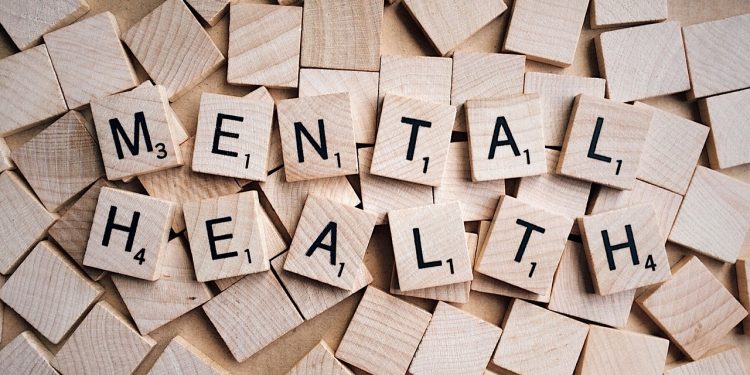Maintaining a diligent, resilient, and balanced mental state is key to a fulfilling journey of improved mental health and wellness. However, contrasting to this vision, our world presents a concerning reality. Shockingly, 21% of U.S. adults experienced a mental health condition in 2020, while 32.1% of individuals struggled with mental health and substance abuse. Our daily lives are often consumed with numerous complex tasks, responsibilities, and emotions, causing our mental well-being to suffer as we push it aside until it demands our attention. We must prioritize mental health in our conversations and actions at a societal level and focus on nurturing it within ourselves and our communities.
Empowering Yourself through Knowledge: The Digital Route
The digital era, defined by technological advancements and seamless connectivity, offers information for those seeking to learn. We can harness the power of digital resources to shape our understanding of mental health. The knowledge available on the internet can be an incredibly empowering tool. It provides deeper insight into the complexities of the human mind, providing a deeper understanding of its intricacies and subtleties. It acts as a resource, highlighting common mental health symptomsand making it easier to identify them in ourselves or those around us. It directs users toward professional help, making the journey toward mental health less daunting.
Aspiring professionals can enroll in a specialized program to gain the knowledge and skills required in their chosen career field. For instance, an online psychology degree can provide students with the knowledge and skills necessary to pursue a career in psychology. This type of degree can prepare students for various roles, including therapist, researcher, clinician, and counselor.
While providing a deep dive into understanding mental health, the curriculum also fosters an environment that encourages empathy, critical thinking, and problem-solving, equipping students with the skills necessary to navigate the complex world of mental health. This knowledge can be invaluable in promoting one's mental health, spreading awareness, and supporting others on their journey to mental wellness.
Understanding the Basics of Mental Health
Mental health is more than just the absence of mental disorders. It encapsulates our emotional, psychological, and social well-being. Mental health is critical in managing stress, interacting with others, and making decisions. However, mental health disorders can interfere with our well-being. Anxiety, depression, bipolar disorder, schizophrenia, and more, unfortunately, are part and parcel of the human experience. The stigma around these conditions often aggravates their impact, making it crucial to demystify and destigmatize mental health.
Individual Strategies for Mental Health Wellness
The pursuit of mental health and wellness is a personal and significant process, a pilgrimage that begins with the self. Along the way, it demands mental resilience, which allows us to recover and adapt. Maintaining this resilience involves adopting various mindfulness practices. Meditation and yoga, for instance, coax the mind into a state of awareness. At the same time, regular exercise and a balanced diet serve as essential nutrients that invigorate the mind and body. Yet, like resources depleting under continual stress, our mental resilience can deplete, leaving us feeling drained and lonely. In such moments, reaching out for professional help isn't an admission of defeat but a bold proclamation of our courage and resilience. Alongside these strategies, we must honor ourselves by indulging in self-care and embracing relaxation techniques. It is similar to diligent self-care, attending to our mental needs with love and care, enabling it to flourish the fruits of mental health and wellness.
Community-driven Strategies for Mental Health Promotion
Although the journey to mental health wellness is deeply personal, it does not unfold in isolation. Our well-being is deeply intertwined with the wider context of our community. While individual strategies form the cornerstone of mental health wellness, community-driven systems reinforce this foundation, playing a crucial role in the growth and development of overall mental health. These strategies include initiatives focusing on community education, spreading awareness about mental health, and breaking down the walls of stigma. They manifest as creating safe and supportive environments that promote dialogue, understanding, and acceptance. They foster social connections and buildrelationships that provide emotional support and a sense of belonging. Additionally, they involve ensuring accessible community mental health resources.
The Role of Technology in Promoting Mental Health
In the grand scheme of our lives, technology has become an integral part of our lives, weaving itself into our daily routines and interactions. Within this pattern lies an immense potential to foster mental health and wellness. Think of technology as a platform abundant in resources and tools designed to enhance mental well-being. It contains mental health apps armed with resources and techniques to manage stress and anxiety, akin to a personal counselor available at your fingertips. It offers online therapy sessions, bringing professional help into your living room and reducing geographical and logistical barriers to mental health care. In addition to these resources, technology also opens up avenues for community building. Online support groups serve as virtual meeting spaces for individuals from across the globe, allowing them to share their experiences, struggles, and triumphs, thus fostering a network of understanding, empathy, and support.
Policy Recommendations for Mental Health Promotion
On the path to creating a mentally healthy society, influencing policy changes favoring mental health promotion is an important step. These policy changes should span various spheres of our lives, from schools and workplaces to governmental institutions. They should serve to alter attitudes and practices regarding mental health and wellness. Access to mental health services shouldn't be a coveted privilege available to a select few but a fundamental right everyone can claim. Policies that promote equitable access, foster environments conducive to mental health wellness, and actively work towards reducing stigma can light up the path to mental health wellness for everyone in society. These policy recommendations can shape societal attitudes and behaviors towards mental health, helping us move towards a world where mental health wellness is not an exception but the norm.
Conclusion
As we navigate this process, it becomes evident that mental health wellness isn't a destination but an ongoing process. It involves nurturing our inner landscape, seeking knowledge, implementing individual strategies, and leaning on our communities. Utilizing technology and advocating for policies that support mental health are significant steps on this path. As individuals and communities, our collective stride on this path can promote mental health wellness in every aspect of society. It's time we took a step on this path, an act of courage that speaks volumes. We must acknowledge and prioritize mental health wellness in our daily lives to make it a fundamental part of our society. Therefore, it is incumbent upon each of us to prioritize our mental health and support those around us in doing the same. Our efforts combined can create a mentally healthy society.

























